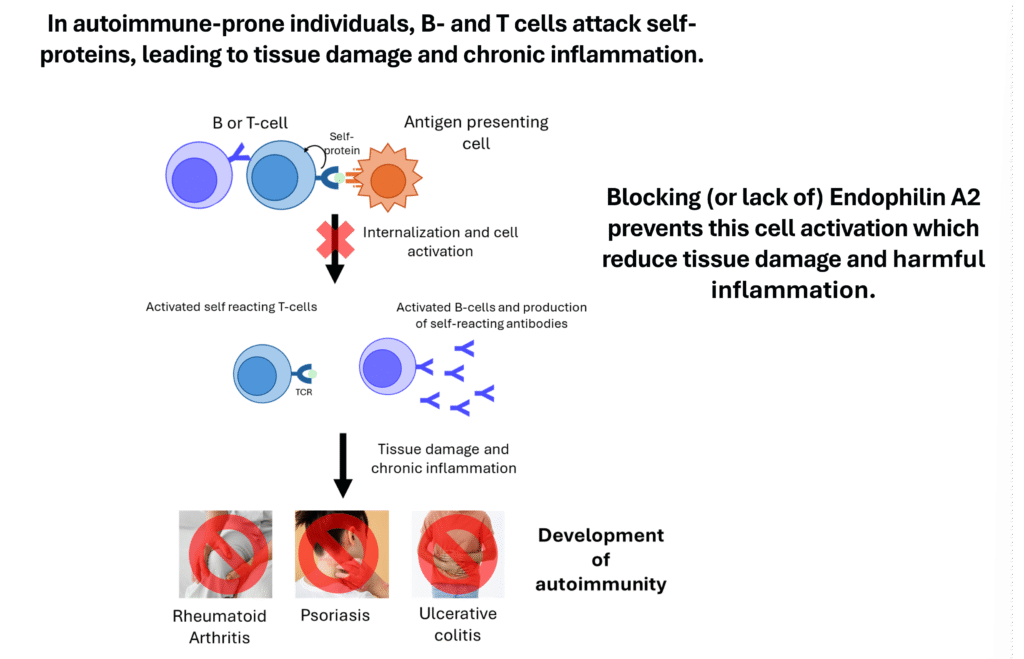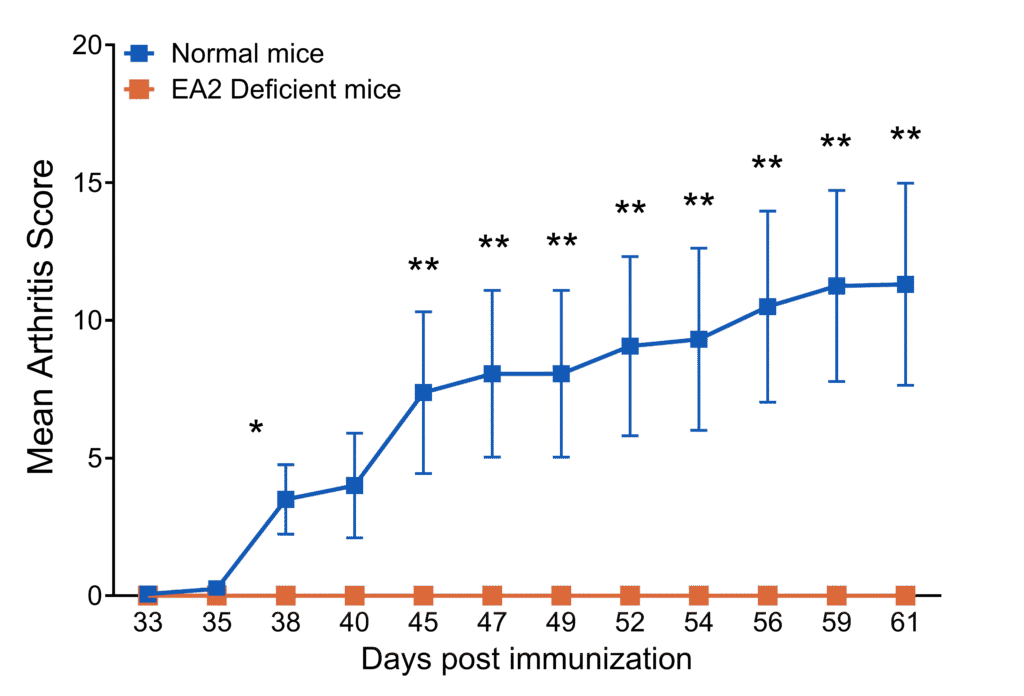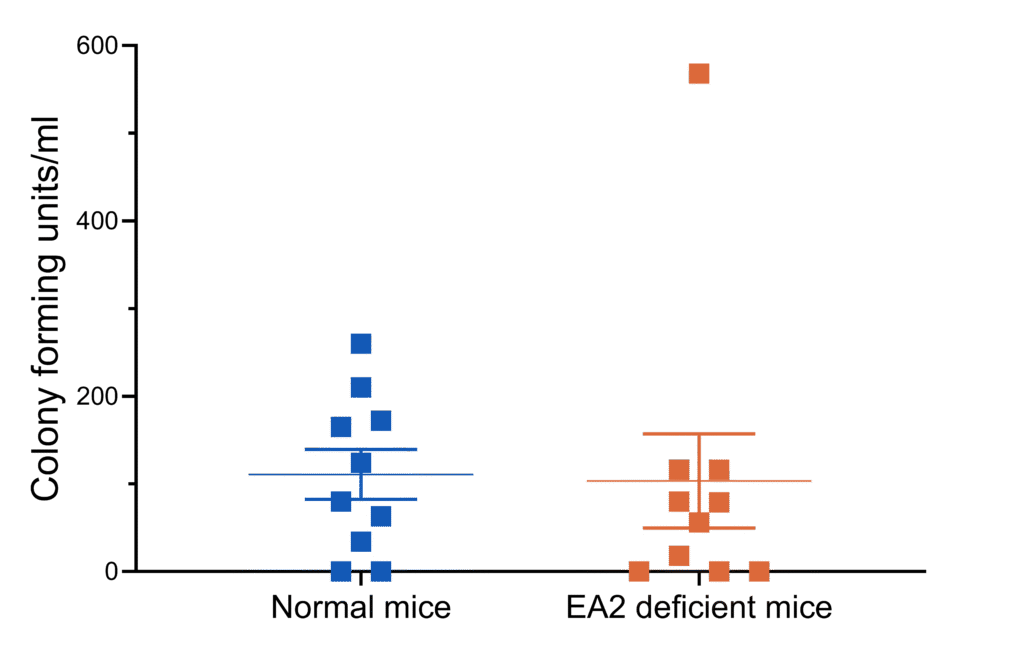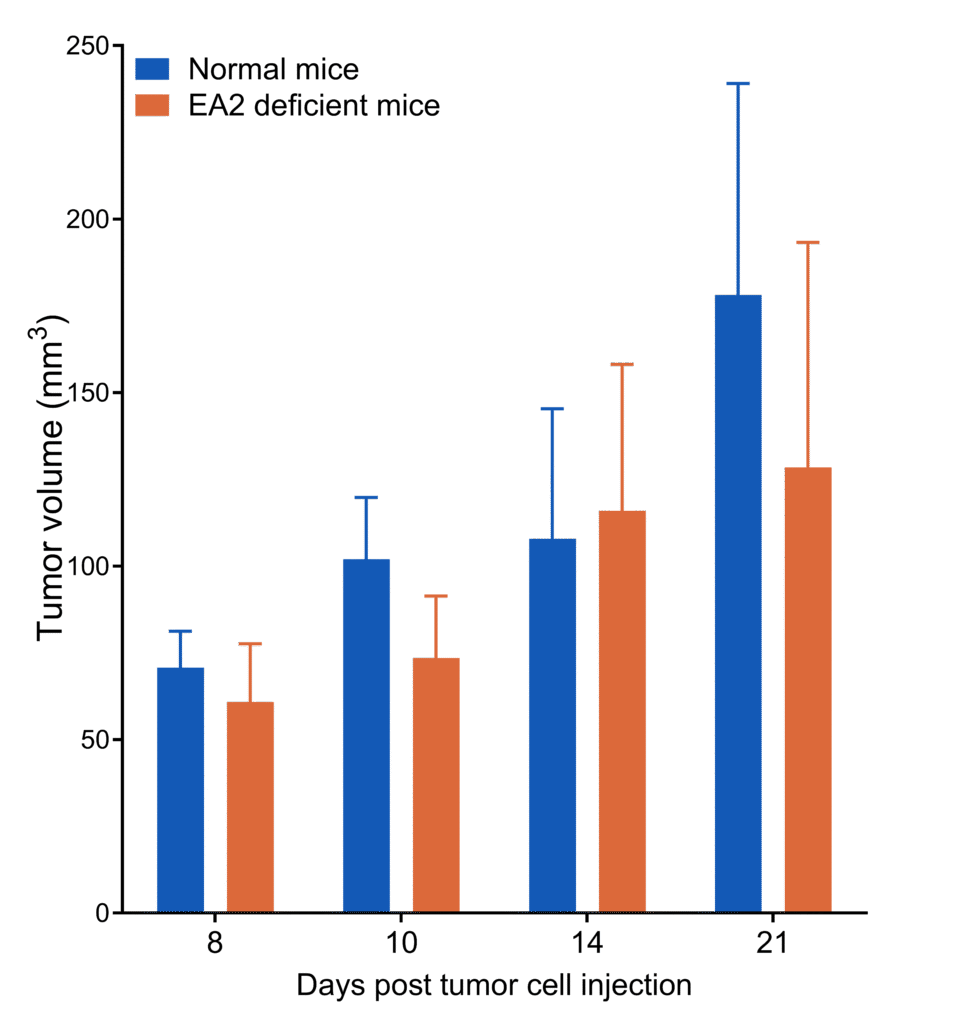Scientific background
Autoimmunity arises when self-reactive T and B cells become activated and sustain inflammatory cascades. Endophilin A2 (EA2) regulates activation and downstream effector functions in both lineages—positioning it upstream of many disease pathways. In preclinical models, loss of EA2 blocks the development of several autoimmune diseases. We are developing small-molecule EA2 inhibitors to therapeutically mimic this protective state and enable selective, disease-modifying treatment.
- Upstream control: dampens multiple inflammatory cascades by gating T/B-cell activation.
- Selectivity potential: aims to reduce pathogenic responses while preserving host defense.
- Breadth: biology shared across autoimmune conditions supports a platform approach.
- Small molecule: scalable development with potential oral dosing.

Selected preclinical evidence

EA2 deficiency eliminates disease across species and disease models.

EA2-deficient mice clear S.aureus infection as effectively as wild-type, with similar bacterial loads.

EA2-deficient mice show no increase in tumor growth compared to normal mice.
Selected references: Norin et al., Nat Commun 2021; Malinova et al., EMBO Rep 2021; Conrad et al., The Lancet 2023; Yang LQ et al., Int J Rheum Dis 2025.
